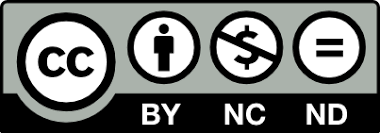LANGUAGE AND MANIPULATION: EXPLORING GASLIGHTING VIA SPEECH ACT THEORY
DOI:
https://doi.org/10.52340/PUTK.2024.2346-8149.09.10Keywords:
Assertives, Direction of fit, Felicity, Gaslighting, Illocution, Perlocution, Speech actsAbstract
Gaslighting, a form of psychological manipulation wherein individuals or groups are led into doubting their perception, memory, or sanity, constitutes a complex discourse with profound pragmatic implications. However, it is seldom explored within the realm of linguistic research. The paper discusses pragmatic aspects of gaslighting from the standpoint of speech act theory proposed by Austin (1962) and Searle (1979). The empirical data comprise excerpts of conversations drawn from the adaptations of the 1938 play "Gas Light" by P. Hamilton, namely, "Gaslight" (1940) by T. Dickinson and "Gaslight" (1944) by G. Cukor.
The study has shown that verbal manipulation within gaslighting relies predominantly on assertive speech acts. Through empirical analysis, three types of assertives prevalent in gaslighting discourse have been identified: explicit assertives, where the encoded message aligns with the literal illocutionary act; covert assertives, where an assertive speech act is conveyed through a different illocutionary act; and inclusive assertives, which convey an encoded message within an assertive speech act through a different illocutionary act, such as a directive or a commissive. Furthermore, in gaslighting scenarios, assertive speech acts acquire a double direction of fit, a characteristic typically not associated with assertives.
The paper serves as a complementary resource to the existing knowledge on gaslighting, paving the way for further research into the linguistic pragmatics of the phenomenon in question.
Full Text (PDF)
References
Anderson, J.R. (2010). Cognitive Psychology and Its Implications. New York, NY: Worth Publishers.
APA Dictionary of Psychology. (2024) APA.org. American Psychological Association.
Austin, J. L. (2020). How to Do Things with Words. Barakaldo Books.
Bara, B. G., Bosco F.M. & Bucciarelli M. (1999). Simple and Complex Speech Acts: What Makes the Difference Within a Developmental Perspective. Proceedings of the XXI Annual Conference of the Cognitive Science Society, 55-60. Eds. M. Hahn & S.C. Stoness, Mahwah, NJ: Lawrence Erlbaum Associates.
Barkley, C.; Kluender, R. & Kutas, M. (2015). Referential Processing in the Human Brain: An EventRelated Potential (ERP) Study. Brain Research. 1629: 143–159.
Beck, A.T., Freeman, A. & Davis, D. D. (2004). Cognitive Therapy of Personality Disorders (2nd ed.). New York: Guilford Press. (pp. 300).
Berwick, Robert C. & Chomsky, Noam (2015). Why Only Us: Language and Evolution. MIT Press. ISBN 978-0-262-03424-1.
Birch, A. (2015). 30 Covert Emotional Manipulation Tactics: How Manipulators Take Control In Personal Relationships. CreateSpace Independent Publishing Platform, p. 60
Booth, S. S. (2017). Planned Ignoring. The Challenge of Teaching. pp. 181–187.
Britannica, T. Editors of Encyclopaedia (2024, March 12). speech act theory. Encyclopedia Britannica. https://www.britannica.com/topic/speech-act-theory
Chomsky, N. (1959) A Review of B. F. Skinner's Verbal Behavior. In Language, 35, No. 1, 26-58.
Croft, William & Cruse, Alan (2004). Cognitive Linguistics. Cambridge University Press
Duignan, B. (2017, February 22). What Is Gaslighting? Encyclopedia Britannica. https://www.britannica.com/story/what-is-gaslighting
Felipe Barrero, A. (2023) J.L. Austin and John Searle on Speech Act Theory. The Collector.com, February 17, 2023, https://www.thecollector.com/speech-act-theory-austin-and-searle/. Retrieved on March 13, 2024.
Fontaine, R. G. (2012). The Mind of the Criminal: The Role of Developmental Social Cognition in Criminal Defense Law. New York, NY: Cambridge University Press. (p. 41)
Gavins, J. & Steen, G. (2003). Cognitive Poetics in Practice. London: Routledge.












